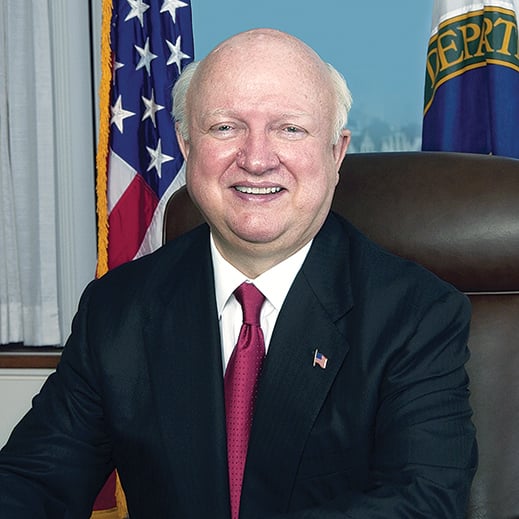Some careers are easily categorized. Not Samuel Bodman’s—he has been an associate professor in Course X, a venture capital pioneer, a turnaround CEO, and a top-level official at three U.S. government departments.

“I’ve always believed that if you aspire to do your best, opportunities will present themselves,” he says.
Growing up in Chicago, Bodman wanted to become a surgeon, but he paid a fateful visit to Cornell University’s School of Chemical Engineering. “I had never heard of chemical engineering, but the challenges they were addressing were fascinating. I knew I wanted to go there,” he recalls. After earning his bachelor’s degree in 1961, he came to MIT, where he completed his doctorate in 1965. Mentors included professors Hoyt Hottel, Ray Baddour, and Thibaut Brian.
Bodman began teaching but caught the eye of Georges Doriot, cofounder (with former MIT president Karl Compton) of the first public venture capital firm, American Research and Development. “I moonlighted as ARD’s technical director, evaluating investment possibilities at what we’d now call startups,” he says. “I owe a great debt to Georges. He insisted on developing proper habits and respect for the business world. We always wore hats—straw in summer, felt in winter—and were always reminded to ‘protect the investment.’”
Bodman’s successes led to his 1970 hiring at Fidelity Investments, then a 40-person company, where he rose to president and COO. While there, he established a new mutual fund, choosing as its manager “a tall lean fellow with big glasses.” The man was Peter Lynch, and the fund became the legendary Magellan Fund.
In 1987, Bodman became CEO of the venerable but struggling Cabot Corp. During 14 years there, he invested in plants and R&D, reëstablishing profitability. He has also served as a trustee of Cornell, the New England Aquarium, and the Isabella Stewart Gardner Museum and as a member of the MIT Corporation and its executive committee.
Although Bodman describes himself as apolitical, he entered government service when President George W. Bush nominated him as deputy secretary of commerce. After two years, he became deputy secretary of the Treasury and focused on tracking terrorist funding networks. In 2004 he won unanimous Senate approval as secretary of energy, a post he held until 2008.
Bodman and his wife, Diane, divide their time between Florida and Martha’s Vineyard; he remains an avid Red Sox and Patriots fan.
Keep Reading
Most Popular
Large language models can do jaw-dropping things. But nobody knows exactly why.
And that's a problem. Figuring it out is one of the biggest scientific puzzles of our time and a crucial step towards controlling more powerful future models.
How scientists traced a mysterious covid case back to six toilets
When wastewater surveillance turns into a hunt for a single infected individual, the ethics get tricky.
The problem with plug-in hybrids? Their drivers.
Plug-in hybrids are often sold as a transition to EVs, but new data from Europe shows we’re still underestimating the emissions they produce.
Google DeepMind’s new generative model makes Super Mario–like games from scratch
Genie learns how to control games by watching hours and hours of video. It could help train next-gen robots too.
Stay connected
Get the latest updates from
MIT Technology Review
Discover special offers, top stories, upcoming events, and more.